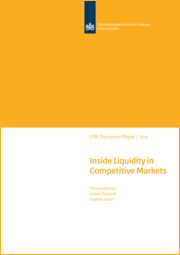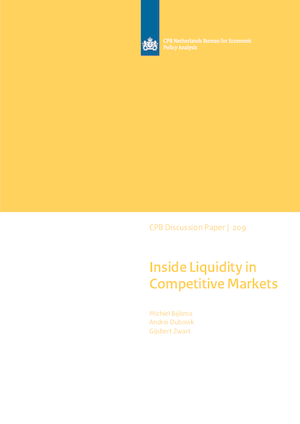Inside Liquidity in Competitive Markets

We show that if the probability of a crisis is large or if assets are slightly pledgeable, then all intermediaries reserve liquidity. However, if the probability of a crisis is small or if assets are highly pledgeable, then intermediaries segregate ex ante: some reserve no liquidity, others reserve to the maximum and become liquidity providers. This segregation arises, because in the latter case the crisis short-term rate exceeds the returns on long-term investments, while at the same time higher liquidity holdings also increase survival probability. Together, these two effects result in increasing marginal returns to liquidity in the crisis state, and, consequently, segregation ex ante. In either equilibrium, aggregate liquidity is too small if assets are not fully pledgeable. Minimum liquidity requirements only improve welfare in the symmetric equilibrium. Marginally lowering the interest rate causes a marginal crowding-out of private liquidity with public liquidity in the symmetric equilibrium, but a full crowding-out in the asymmetric equilibrium.
